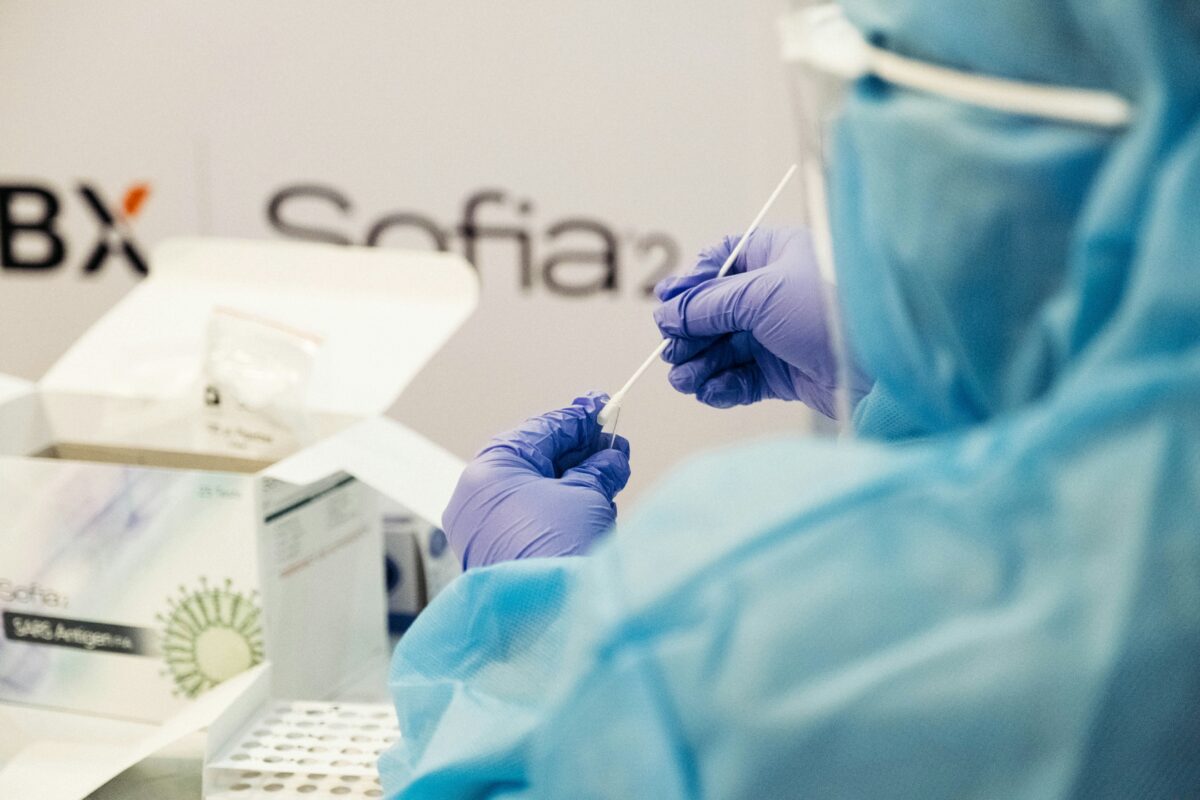From increased medical waste to surges in single-use plastic to the widespread collapse of waste management practices, COVID-19 has increased the amount of waste across the globe. Science Magazine reports that “If the global population adheres to a standard of one disposable face mask per day after lockdowns end, the pandemic could result in a monthly global consumption and waste of 129 billion face masks and 65 billion gloves.” That is a lot of additional items clogging up waste streams and posing new challenges for waste mitigation efforts. College campuses are no exception: with to-go dining hall containers, bring-your-own-cup and bag bans, sanitizing wipes in every building, and single-use face masks around Boston University, the impacts of COVID-19 on our waste production are significant.
To give some perspective, imagine a day in the life of a student: they step outside, wearing their single-use face mask (BU does not provide free reusable masks for students). Maybe they are also wearing plastic gloves. They head to their scheduled COVID-19 test, where their testing instruments are pre-packaged in a paper material that they immediately throw out after using. They grab a cleaning wipe for their phone on the way out. Next, they head over to the dining hall for some lunch. They walk in and grab a few different meals in to-go plastic containers, a cellophane-wrapped apple, and an extra sandwich in case the other food isn’t to their liking. They walk home, eat whichever meal looks and smells most appealing, and then throw the rest out, including the containers. They go to class wearing a new disposable mask, where they have to use wipes to clean off their desk. They get a coffee, but they have to use a single-use cup rather than their own for sanitary reasons. For dinner, they order take-out, in a plastic container, using another mask when they go to pick it up.
While there is no exact data on how much waste Boston University is producing now compared to before COVID-19, it is highly likely that waste production has increased. Walking around campus, one sees stray masks and gloves littering Commonwealth Avenue in the places where students used to abound. With the option to take food to-go in dining halls, students are selecting a plethora of different food options, which increases food waste as well as plastic waste from the takeout containers.
One student sums this up with a glimpse into her own experience: “Whenever I go [to the dining hall] I never get just one thing because you can’t say ‘I just want this,’ so often my friends and I will end up getting multiple meals and then eating from them what we want and getting rid of the rest. Also, since we can only take a set amount we never know if it is something we’re going to like so if I pick something out, try it, and don’t like it, that whole portion gets thrown out.”
Clearly, a student’s lifestyle during the pandemic offers many opportunities to increase individual waste. Between balancing online classes and the added stressors that have accompanied the pandemic, the amount of waste that students produce is not always at the forefront of everyone’s mind. But with so many foundational systems changing at BU in order to adhere to health and safety guidelines, now could be the ideal time to implement big, systematic changes that can persist beyond a COVID-19 environment. If we can change everything about what pre-COVID college looked like, including how we eat, study, learn, and live, then why not add new waste mitigation strategies to that picture in the process?
BU is making steps in that direction. With the expansion of Resident Sustainability Leaders (who work with Resident Assistants to promote sustainability in dorms) in Warren Towers and West Campus, students on campus have access to more resources with personal sustainability experts in their buildings. Food waste is being separated from recycling and trash in the George Sherman Union, which can help reduce the amount of food ending up in landfills. With increases in Zero Waste events on campus and the creation of the Zero Waste Task force with a goal of reaching Zero Waste by 2030 (meaning BU diverts 90% or more of waste from landfill), there is hope for more waste reduction on campus.
Waste is not the center of the world’s attention at the moment. To a large extent, within the COVID-19 context, there is much that is out of one’s control in terms of what they are throwing away. In unprecedented times like these, everyone must take precautions to protect the health and safety of the community. But it is also vital to remember what can still be done now to minimize contributions to excess waste and the environmental degradation that accompanies it.
There are small things that each student can do: use reusable masks, be conscious of choices when in dining halls to try to minimize food and plastic waste, recycle and compost when possible, and ask businesses about their policies on bringing personal cups or bags. The first step to reducing waste is being conscious of our current habits and learning how to improve them. And with time, COVID-19 could provide an opportunity for big changes in waste systems on campus and beyond.
Sources:
Adyel, T. (2020, September 11). Accumulation of plastic waste during COVID-19. Retrieved October 23, 2020, from https://science.sciencemag.org/content/369/6509/1314
Sustainability, Boston University. (n.d.). Important Announcement. Retrieved October 23, 2020, from https://www.bu.edu/sustainability/what-were-doing/waste-reduction/zero-waste-task-force/
You, S., Sonne, C., & Ok, Y. (2020, June 26). COVID-19’s unsustainable waste management. Retrieved October 23, 2020, from https://science.sciencemag.org/content/368/6498/1438.1

